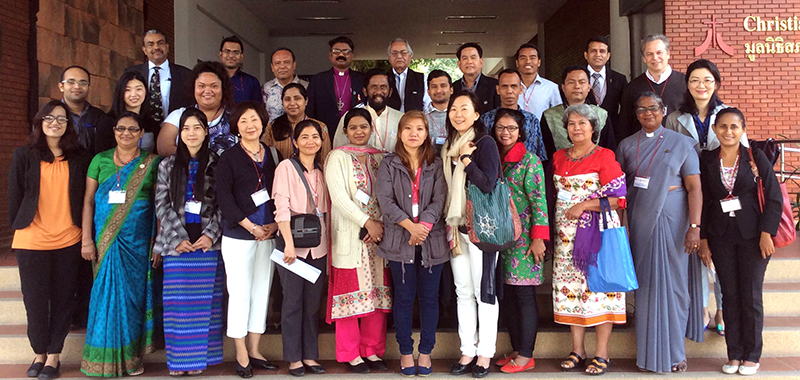“Ecumenical formation of children should be a priority”, says CCA General Secretary at the Asian Conference
“The vision of ecumenism should be taught to everyone, children, youth, men, women and lay and the churches should focus on a strategic direction in theological and ecumenical formation to nurture the values of ecumenism among the future generation”, said Dr. Mathews George Chunakara, the General Secretary of the Christian Conference of Asia (CCA) in a keynote address at the opening session of the Asian Conference on ‘Ecumenical Sunday School Program’.
The Asian Conference on Ecumenical Sunday School Program jointly organized by CCA and the Association of Protestant Churches and Missions in Germany (EMW) is being held at the headquarters of CCA in Chiang Mai, Thailand from 12th to 15th January, 2016.
“The concern for ecumenical formation and theological education has been an integral part of the ecumenical movement from its early beginnings as well as it was an essential dimension of the missionary engagement of Churches around the globe. However, the regional and international ecumenical organizations are not considering the Christian education for children in their current priorities”, added the General Secretary of CCA.
Rev. Martin Krieg , Regional Secretary for Asia of EMW stated that “Churches need an ecumenical framework for Sunday school programs and ecumenical curriculum development should be a priority of churches and Christian missions.”
About 25 representatives of various Sunday School Associations and Sunday school departments of National ecumenical councils from various Asian countries are attending the Conference.
The conference discusses the importance of Sunday School Programs as a place for ecumenical learning with an aim to encourage the national ecumenical bodies dealing with Sunday schools to develop curricula on ecumenical themes for Sunday school programs.











